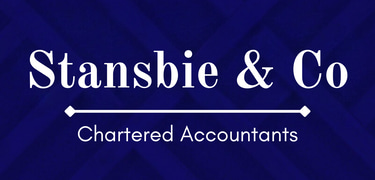Self-Employed vs Limited Company: Pros and Cons Explained
When starting out in business, one of the first big decisions is choosing the right structure: should you operate as self-employed (sole trader) or set up a limited company?
Daniel Stansbie
6/23/20252 min read
If you’re thinking about starting your own business, one of the first big decisions is how to set yourself up. Do you register as self-employed (sole trader), or should you take the plunge and form a limited company?
There’s no one-size-fits-all answer – it really depends on your circumstances, your goals, and sometimes even just your appetite for paperwork! Here’s a straightforward look at the pros and cons of each option to help you weigh things up.
Going Self-Employed
Why people like it:
Quick and easy to start – you can be up and running in a matter of minutes.
Less red tape – compared to running a company, there’s far less admin.
All yours – you keep the profits (after tax) directly.
More private – your personal details don’t end up on public record.
Things to watch out for:
Personal risk – you and the business are the same legal entity, which means if the business runs into debt, your personal assets could be on the line.
Tax can bite – sole traders often pay more in tax and National Insurance once their profits grow.
Perception – some bigger clients or lenders prefer dealing with companies rather than individuals.
Raising finance – banks and investors are often more cautious with sole traders.
Setting Up a Limited Company
Why people choose it:
Protection – as a director, your personal assets are usually safe if the company gets into trouble.
Potential tax savings – many business owners take a mix of salary and dividends, which can be more tax-efficient than paying income tax as a sole trader. And there are more tax-deductible expenses you can make use of via a limited company.
Credibility – having “Ltd” after your name can give your business a more professional feel.
Room to grow – it’s easier to raise investment or finance through a company structure.
Downsides:
More admin – annual accounts, tax returns, and Companies House filings all take time (or an accountant’s help).
Costs – professional fees and compliance costs are higher than just being self-employed.
Profits aren’t yours straight away – money belongs to the company first, so you need to plan how you pay yourself.
Less privacy – directors’ details and company accounts are available on public record.
So, Which Should You Pick?
If you’re testing the waters, freelancing on the side, or just want to keep things simple, starting as self-employed is often the easiest route.
If you’re earning more, want to protect your personal finances, and are serious about growing your business, a limited company may be the smarter move in the long run.
Final Thought
Every situation is different. What’s right for your friend or neighbour might not be right for you. That’s where proper advice comes in – an accountant can help you crunch the numbers, weigh up the pros and cons, and choose the structure that gives you the best balance of tax efficiency, protection, and flexibility.
